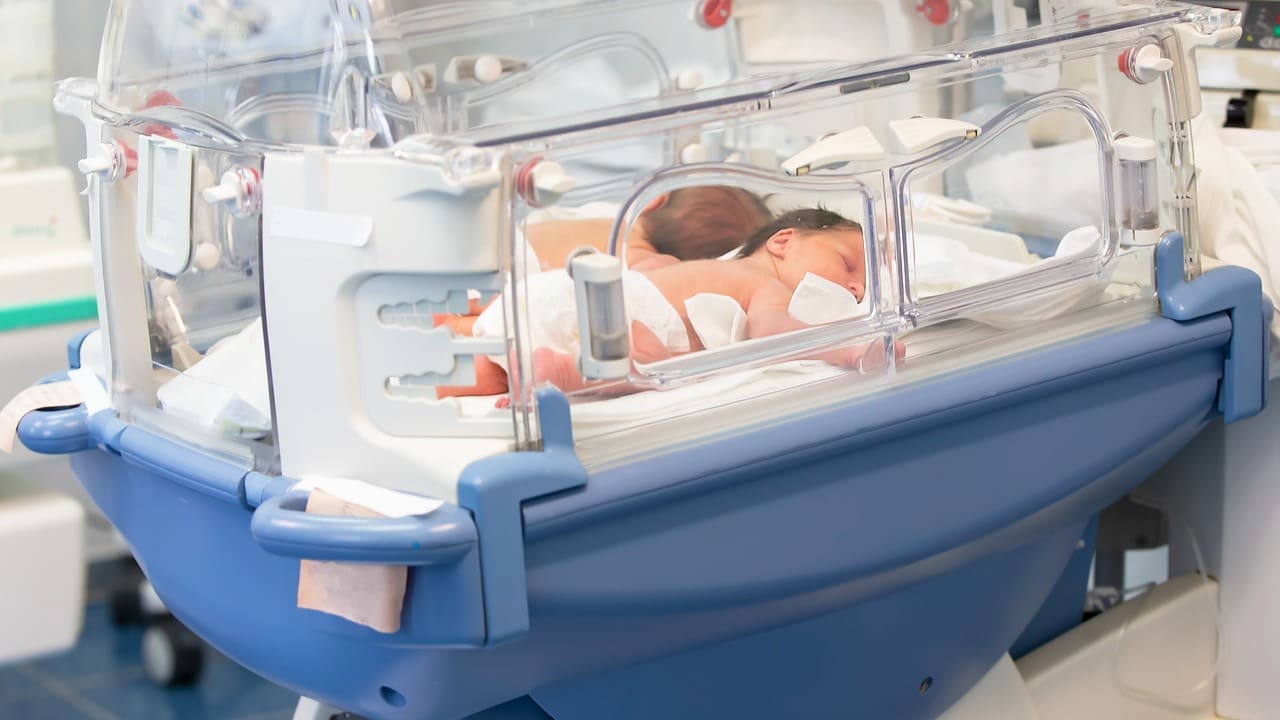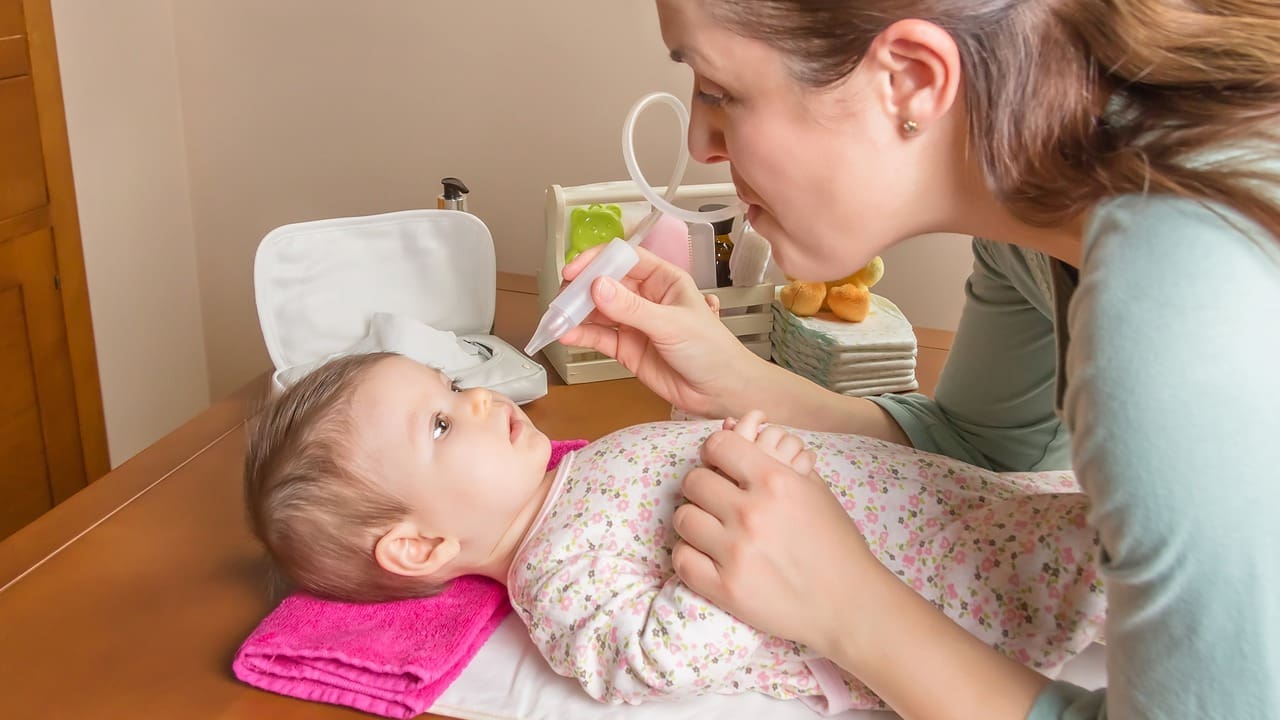What is a Neonatal Intensive Care Unit
Our Neonatal Intensive Care Unit (NICU) cares for newborns who need extra medical support, such as premature babies or those with breathing problems, infections, or certain conditions present at birth. In the NICU, a team of doctors, nurses, therapists, pharmacists, and dietitians works closely together to provide safe, family focused care. We help your baby get stronger and ready to go home, and we make sure you stay informed and involved throughout your baby’s stay.
The environment is tailored to delicate newborn needs. We use incubators and radiant warmers for temperature control, continuous monitoring for heart rate, breathing, blood pressure, and oxygen saturation, and advanced respiratory support such as CPAP, high flow oxygen, and mechanical ventilation when needed.
Our care plans include gentle handling, infection prevention, skin protection, and strategies that promote brain and lung development. Nutrition is a cornerstone: we support breastfeeding with lactation consultants, provide donor milk when appropriate, and fortify feeds to meet growth goals.

NICU levels help make sure each baby gets the right care. Level I is for healthy newborns, Level II helps babies who are a little sick or born a bit early, Level III cares for very premature or seriously ill babies who need advanced breathing support, and Level IV offers the most complex surgeries and treatments.
Our NICU is a Level III unit, and we work closely with Level IV centers if your baby needs more specialized care. This way, your baby always gets the right support when it’s needed most.
We put families at the center of our care. Parents can join bedside rounds, ask questions, and learn hands on skills like skin to skin care, safe positioning, and feeding. We keep you updated every day and teach you what you need to know for going home. From the moment you arrive until discharge, we support both your baby’s health and your family’s well being.
Neonatal Intensive Care Unit Definition: When Your Baby Needs Specialized Care
The NICU is a specialized area of the hospital where newborns receive intensive monitoring and treatment. Babies may be admitted because they are born prematurely (before 37 weeks), have low birth weight, breathing difficulties such as respiratory distress syndrome, infections, jaundice, or blood sugar instability.
Some babies have congenital heart disease or other anomalies, while others are recovering from or preparing for surgery. Maternal health factors, such as diabetes, high blood pressure, or complications during delivery, can also lead to NICU admission.
Each baby’s care plan is individualized. We tailor respiratory support from supplemental oxygen to CPAP or ventilators using gentle ventilation strategies that protect developing lungs. Feeding plans prioritize breast milk for immunity and digestion; when needed, we supplement with donor milk and fortify to support growth.
We monitor and treat common issues such as apnea of prematurity, anemia, reflux, and feeding intolerance. Throughout your baby’s stay, social workers and case managers assist with logistics, insurance, and discharge planning, including scheduling pediatric follow ups, immunizations,
and early intervention services if needed.
Level III Neonatal Intensive Care Unit vs Level IV Regional Neonatal Intensive Care Unit : Choosing the Right Level of Neonatal Care
Knowing the difference between Level III and Level IV NICUs can help you make the best choice for your baby. Level III NICUs provide round the clock life support and advanced breathing treatments, including ventilators.
They have access to pediatric specialists and advanced imaging, and can do some procedures. Level III units care for very premature or seriously ill babies and can stabilize them if they need to be moved to a Level IV center for more complex surgery.
A Level IV regional neonatal intensive care unit offers comprehensive on site neonatal surgery, including cardiac surgery, ECMO (extracorporeal membrane oxygenation), and the full range of pediatric surgical subspecialists and anesthesiologists.
These units are equipped for the most complex congenital and acquired conditions. If your baby requires Level IV care, we coordinate transport with specialized neonatal teams and maintain close communication with your family. When your baby is ready, we help transition back to our unit or home with coordinated follow up.
Neonatal Intensive Care Unit Nurse and Registered Nurse Roles: 24/7 Monitoring, Feeding, and Comfort

NICU nurses are registered nurses with special training in caring for newborns in intensive care. They watch over your baby at the bedside, check vital signs, give medications, manage IVs, and help with breathing support like CPAP and ventilators. They also guide feeding, moving from IV nutrition to tube or bottle feeding as your baby grows, and teach families about skin to skin care, safe handling, and understanding your baby’s signals.
NICU nurses are trained in newborn resuscitation, ventilator care, infection prevention, and supporting your baby’s development. Many continue to learn new skills and earn extra certifications. They explain how monitors and alarms work, show you how to spot your baby’s stress signals, and help you feel confident with daily care like diapering, checking temperature, bathing, and feeding. NICU nurses are a key part of the team, making sure your baby gets caring attention day and night.
Single-Family Room Neonatal Intensive Care Unit : Privacy, Kangaroo Care, and Better Outcomes
Single-family room NICUs are built to help families bond, have privacy, and lower the risk of infection, while still keeping babies safe and closely monitored. These private rooms are quieter and dimmer, which helps babies sleep and develop.
Parents can stay nearby, do more skin to skin care, and take part in caring for their baby without as many interruptions. Many families feel that these rooms help with breastfeeding and boost their confidence before going home.
Each room has the same advanced monitors and emergency systems as larger open bay NICUs. We offer family friendly features like comfortable chairs, storage, space for pumping, and nearby lounges so you can stay close to your baby.
We also use care routines that respect your baby’s sleep and try to group care tasks together, which helps reduce stress and supports healthy growth.

Neonatal Intensive Care Unit Baby Comfort Program: Non Pharmacologic Pain Relief and Developmental Care
Comfort is key to helping babies heal. Our Neonatal Intensive Care Unit comfort program uses gentle, non medication methods to lower stress and support healthy growth. We use swaddling, nesting, pacifiers, a little sugar for short procedures, gentle positioning, and skin to skin care. We try to do care when babies are awake and group tasks together so they can sleep longer. We also keep noise and light low to make the Neonatal Intensive Care Unit as calm as possible.
We support feeding from the very beginning. Lactation consultants help with pumping, storing milk, and latching. The team works together to move from tube feeding to bottle or breastfeeding as your baby is ready. If needed, speech therapists check feeding and swallowing and share tips to help your baby feed safely and grow well.
PSS-NICU (Parental Stressor Scale): Reducing Stress in the Neonatal Intensive Care Unit
The Neonatal Intensive Care Unit can feel overwhelming with all its sights, sounds, and constant monitoring. We use tools like the Parental Stressor Scale to find out what is most stressful for families, such as alarms, medical procedures, or feeling less involved as a parent.
By learning about your stressors, we can offer better support and clearer communication. We help you get to know the equipment and team, and we give regular updates and bedside teaching so you always know how your baby is doing and what to expect.
We connect families with social workers, psychologists, chaplains, and peer support. Our flexible visiting policies help you bond with your baby while keeping everyone safe. Parents are welcome to join in daily care, which builds confidence and strengthens your bond with your baby. We want to support you through your NICU journey and help you get ready for life at home.
NICU Warriors: Milestones, Hope, and Preparing for Discharge

Every family’s NICU experience is different, and progress is marked by important milestones. You might notice your baby needing less breathing support, keeping a steady temperature in an open crib, eating more by mouth, gaining weight, and having fewer breathing or heart pauses. We celebrate each step, from passing the car seat test to finishing hearing checks.
We start planning for going home early. We teach you infant CPR, safe sleep, how to give medicines, and set up follow-up visits with your pediatrician and any needed specialists. If your baby needs extra help, we arrange therapy and feeding support.
Our team gives you a full summary, shows you how to use any equipment, and makes sure you know who to call with questions. The NICU journey can be tough, but with support, your baby can do well at home.
What to Expect in the NICU: Equipment, Monitors, and Your Baby’s Daily Care
In the NICU, you will see special equipment for newborns, like incubators and warmers to keep babies warm, ventilators and CPAP for breathing, and pumps for giving medicine and nutrition. Monitors show heart rate, breathing, blood pressure, and oxygen levels. Alarms help the team react quickly if something changes. Nurses will explain what each machine does and what the alarms mean.
Each day, we gently handle your baby, change diapers, check temperature, and position them for comfort and healthy development. Feeding starts with IV nutrition, then moves to tube or bottle feeding as your baby is ready. We watch weight and growth closely, adjust nutrition, and make sure all shots and screenings are done on time. We keep you informed and encourage you to take part in care, so you feel ready when it’s time to go home.
Liv Hospital Neonatal Intensive Care
Liv Hospital Neonatal Intensive Care Unit allows babies to receive the most adequate treatment with its specialized team and advanced technological incubator like equipments.
Babies in separate rooms in intensive care
Getting severe infections in the hospital can negatively affect the brain development of babies and leave serious sequelae for life. In order to eliminate this risk of infection, each baby in the Liv Hospital Neonatal Unit receives intensive care service in separate rooms, a first in Türkiye.
In our clinic, nosocomial infections are not observed in newborns. We are extremely selective in the rational use and administration of antibiotics to all babies in the unit.
A separate room for each premature baby
The infection rate in the Liv Hospital Neonatal Unit is only 2 percent since premature babies, who especially require sensitive care, are given the necessary treatment and care in separate rooms. While this figure is around 15-20 percent on average internationally, the survival rate in very small in babies born under 1,000 grams in our hospital is 100 percent.
In cooperation with experienced physicians
While recuperating the babies, a multidisciplinary approach is adopted with support from other units when necessary. Cooperation is made with experienced physicians in the pediatric neurology, pediatric cardiology, pediatric endocrinology, cardiovascular surgery, retina and brain operation branches.
Examinations are performed at the incubator
In our unit, tests such as ultrasound imaging, direct radiological imaging, retinal examinations, hearing tests, brain EEG and heart echo can be performed without moving babies from their beds. Thanks to portable technological services, medical examinations of babies are provided in a comfortable and safe environment.
Advanced premature babies are discharged healthily
At the Liv Hospital Neonatal Care Unit, where neonatal intensive care technology and experience are combined, advanced premature babies and newborns in other risk groups can be discharged healthily. Newborns who had a risky birth may need to be monitored in the Neonatal Intensive Care Unit (NICU) after the birth. All patients discharged from the NICU must visit the High Risk Infant Follow up Clinic.
For more information about our academic and training initiatives, visit Liv Hospital Academy.
Frequently Asked Questions for Neonatal Intensive Care Unit
Does your NICU coordinate with Level IV regional centers if needed?
Yes. We arrange neonatal transport to a Level IV regional NICU when required and maintain close communication, with plans for transition back home when your baby is ready.
How long will my baby stay in the NICU?
It depends on gestational age, medical needs, and milestones like breathing without support, maintaining temperature, full oral feeds, and steady weight gain. Your team will provide updates and an estimated timeline.
What should I expect on my first NICU visit?
Bring your ID and insurance information, inquire about visiting policies, and wear comfortable clothing for skin to skin contact. You’ll meet your baby’s team and get oriented to monitors and alarms.
How does the NICU prevent infections?
Through strict hand hygiene, sterile line care, device bundles, visitor screening, and single family room design when available, while still supporting bonding and kangaroo care.
What happens during NICU discharge planning?
Parents receive CPR and safe sleep education, car seat testing, medication teaching, and a clear follow up schedule with pediatric and specialty clinics to ensure a smooth transition home.
Can I tour the NICU before delivery if I’m high risk?
Many hospitals encourage prenatal tours of Level III NICUs or Level IV regional NICUs. A tour helps you understand single family rooms, visiting policies, and the care approach.
What equipment is common in a NICU, neonatal intensive care unit?
Incubators, warmers, ventilators, CPAP, high flow oxygen, infusion pumps, phototherapy, and continuous monitors for heart rate, breathing, blood pressure, and oxygen levels.




